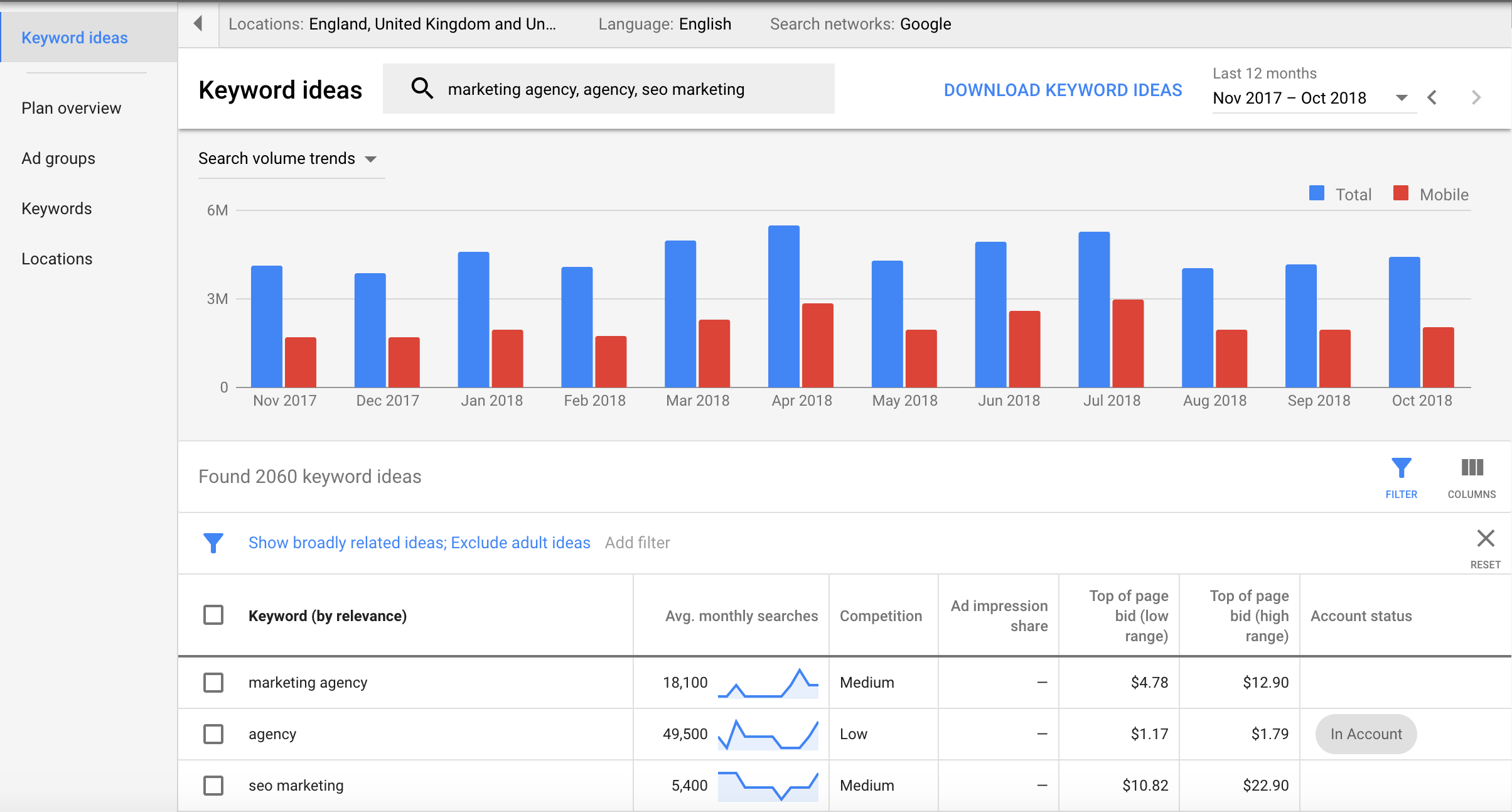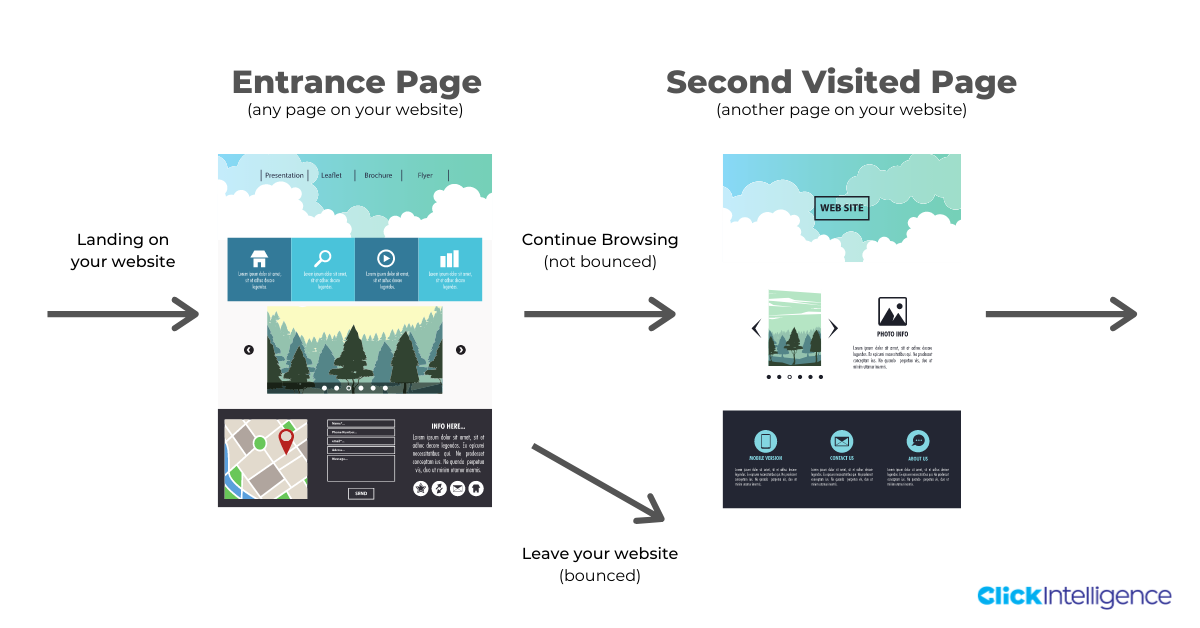The importance of keywords has come under much scrutiny in recent years, with many SEO experts doubting keywords’ utility for helping a website climb the ranks of Google’s results pages. However, when looking to answer the question “why is keyword research so important,” the focus should not simply be on the keyword itself, but also on how targeted it is and the search intent behind it.
Think about why people search the web.
They search the web because they’re looking for a solution to a problem – they want to find content that will help them with do so.
Keyword research gives you a direct insight into what people are entering into search engines, how many people are searching for it and in what format they want the information to be.
Still think that keyword research is overrated?
We’re now going to delve further into keyword research, answering the questions, how does keyword research work and why is keyword research so important for SEO.
How does keyword research work?
Now you know what keyword research is, we need to establish how you can go about conducting keyword research for maximum results.
As previously mentioned, user intent is crucial in keyword research, as it allows you to boost your ranking potential and determine exactly what it is that searchers want.
The keyword research processes outlined below will enable you to establish a list of terms you should be targeting, allowing you to create the most effective keyword selection strategy ever!
1. Make a list of relevant topics
The first and arguably most crucial step is determining what topics you want to rank for. These will be based on what you know about your business and what you think your customers search for when they are looking for your products or services.
You should aim for between five and ten topics that directly relate to your business. You can then use these to come up with specific keywords.
It can be a good idea to put yourself in the position of the consumer – if your business is the answer, what question is the consumer asking? What could they be searching for?
Don’t forget voice search keywords, as these are on the rise and can often be quite different from traditional keyword searches.
You may also want to check out your competitors’ websites for inspiration on effective keywords within your niche.
2. Use a keyword research tool
Once you have your list of keywords, you can then use a keyword research tool such as Google Keyword Planner to find out which of your keywords you are most likely to rank well for.
Try to identify what keywords your website is already getting found for by looking through your organic traffic bucket on Google Analytics.
Both these vital tools can be confusing if you are not used to using them, so you might want to consider outsourcing to experts in SEO who will be able to help you navigate them with ease.

3. Check for a combination of head terms and long-tail keywords
For an optimal keyword research strategy, you need to make sure that you have the right combination of head terms and long-tail keywords.
Head terms are keyword phrases that are short and more generic, whereas long-tail keywords usually contain three or more words.
Having the right balance of these two types of keywords is crucial if you want to experience short-term wins and achieve long-term business goals.
4. Finalise your list of keywords
Now is the time to narrow down your list with the use of quantitative data. Google AdWords Keyword Planner and Google Trends are both crucial tools that will help you to do this.
You can determine search volume and traffic estimates for your selected keywords and check out trend history and projections.
5. Optimise your website
The final step is in applying your keywords to your website. Make sure that you place your keywords strategically throughout your content, including them in your meta tags, meta descriptions and directly on the page.
Why is keyword research important for SEO?
It’s true that working out “what is keyword research,” understanding “how does keyword research work” and taking the time to actually put together your list of keywords and phrases can seem like a lot of work.
And it is. But with good reason.
Without proper keyword research, you will effectively be blind to your online customers, unaware of what they are looking for when it comes to your business.
Let’s take a look at what exactly happens when you fail to carry out adequate keyword research.
Less traffic directed to your website
Without keyword research, you will be unable to optimise your images, pages and content strategy, meaning that you will not draw qualified traffic to your site.
As well as using relevant keywords, you also need to focus on link building if you want your site to be seen by as many people as possible.
An increase in bounce rate
If you are using the wrong keywords, you may experience a short-term boost in your Google ranking, but this will eventually be caught, and you will lose customers and your overall ranking.
If you want to reduce your bounce rate, SEO auditing services can be extremely useful to identify any issues with your site that may be affecting your ranking.

You waste time & money
Carrying out keyword research is not a quick task. It takes time, knowledge and effort. If you don’t research your keywords properly, you may choose keywords that are too competitive or ones that do not convert into paying customers.
What are organic keywords?
Organic search is big business. In fact, every day, there are over 3.5 billion searches on Google alone. That is a lot of potential customers for your business.
What is organic keywords? It’s simple. An organic keyword is one that is used to attract free traffic through SEO. In comparison, PPC, or pay per click keywords, are bid on through paid search marketing campaigns.
Both are effective, but for organic search to work – and work well for you and your business – you need to have a well-thought-out keyword research strategy in place.
Are you ready to start creating a keyword research strategy that will work hard for your business? Get in touch today.
Additional Related Articles
- https://www.clickintelligence.co.uk/could-the-increase-in-voice-search-affect-keyword-strategies/
- https://www.clickintelligence.co.uk/keyword-selection-strategy-2017/
- https://www.clickintelligence.co.uk/keywords-ranking-on-google/
- https://www.clickintelligence.co.uk/what-are-long-tail-keywords/
- https://www.clickintelligence.co.uk/do-organic-keyword-rankings-still-matter/
- https://www.clickintelligence.co.uk/seo-auditing/
- https://www.clickintelligence.co.uk/link-building/
- https://www.clickintelligence.co.uk/managed-seo-campaigns/
